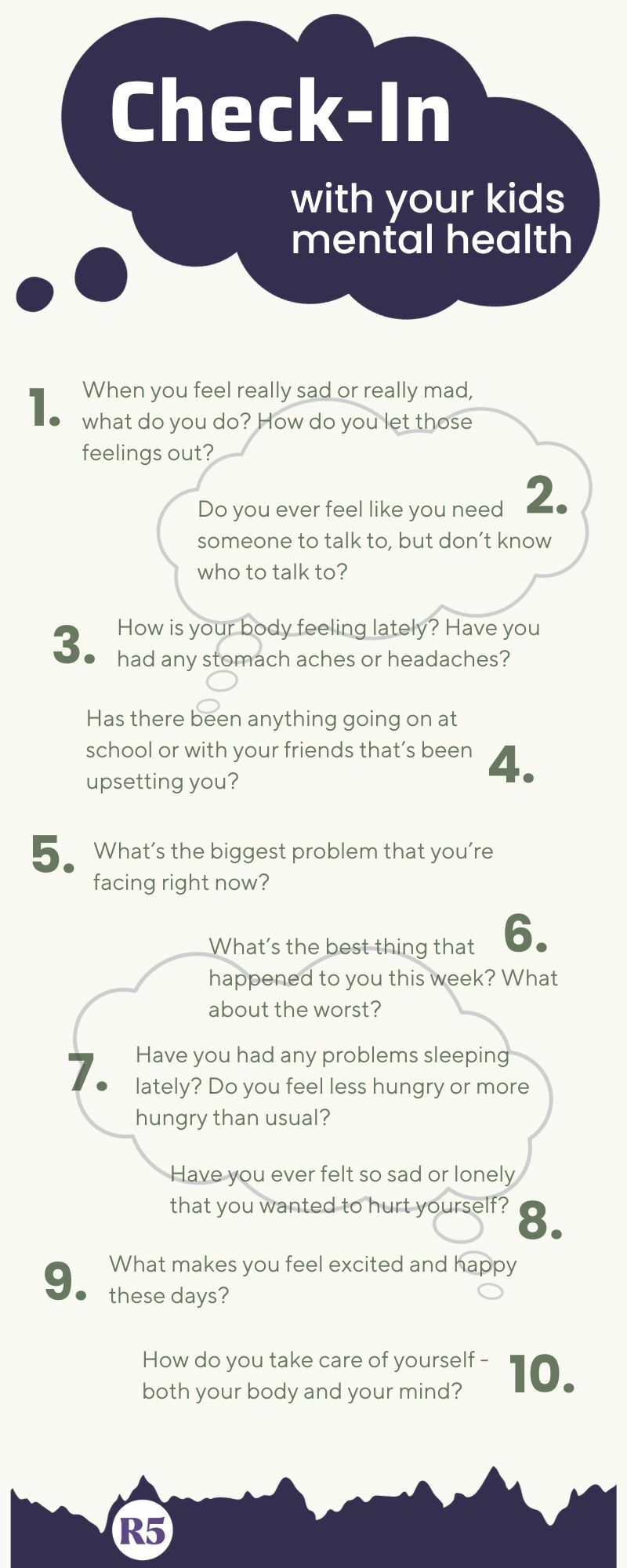How often do you talk to your child about mental health? If you’re like most parents, probably not too often. Children are often left out of conversations about mental health. Sometimes it’s because adults think they’re too young to understand or that it’s not relevant to them. Other times, it’s because of the stigma surrounding mental health.
Why Talking To Your Child or Teen About Mental Health Is So Important
You might think that not talking about depression or suicide makes it less likely that your child or teen will think about or experience those things, but data shows that that’s not true. Suicide is the second leading cause of death in people aged 10-14 and the eighth leading cause of death among children aged 5-11. As young as five, children are dying by suicide. Why is that?
Little research has been done on this age group, but one study analyzed data from 134 cases of children who died by suicide and found that nearly a third of the children had some kind of behavioral health concern, with the most common diagnoses being ADHD and depression. More than a quarter experienced some type of trauma and of those, nearly half experienced multiple traumatic events. This means that young children who ultimately die by suicide have some of the same experiences that adults who die by suicide do. It’s critical to recognize what’s going on in their lives and understand how to help them handle it.
What Is a Mental Health Check-in?
A mental health check-in involves a few quick questions that can help you to better understand the state of your child or teen’s mental health. Regular check-ins are critical because we are in the midst of a youth mental health crisis.
10 Questions To Check In on Your Child or Teen’s Mental Health
Checking in with your child regularly means that you’ll have a good idea of what’s going on in their life and how it might affect their thoughts and emotions. You’ll also find out how they handle life’s stressors and will be better able to guide them toward healthy coping mechanisms. Not sure where to begin? Here are a few questions you can ask older children and teens.
1. When you feel really sad or really mad, what do you do? How do you let those feelings out?
2. Do you ever feel like you need someone to talk to, but don’t know who to talk to?
3. How is your body feeling lately? Have you had any stomach aches or headaches?
4. Has there been anything going on at school or with your friends that’s been upsetting you?
5. What’s the biggest problem that you’re facing right now?
6. What’s the best thing that happened to you this week? What about the worst?
7. Have you had any problems sleeping lately? Do you feel less hungry or more hungry than usual?
8. Have you ever felt so sad or lonely that you wanted to hurt yourself?
9. What makes you feel excited and happy these days?
10. How do you take care of yourself – both your body and your mind?
Talking Openly About Mental Health Is the Key To Keeping Your Child or Teen Mentally Healthy
Fostering an open and nonjudgmental environment at home is the best way to ensure that your child stays mentally healthy. If they feel that they can come to you or another trusted person with any problem they have, they’re more likely to do so. If you teach them how to understand and manage difficult emotions, they’ll be better equipped to handle life’s challenges. And if you’re honest about your own struggles, you can help to fight the stigma surrounding mental health and encourage your child to be open about their own experiences.
Help Starts Here – Hope Starts Now
If your older child or teen is struggling with their mental health, encourage them to talk to someone. If they don’t feel comfortable talking to you or if you feel that you can’t give them the specialized help they need, encourage them to call the Region Five Crisis Line.
The crisis line offers 24/7 support for anyone experiencing thoughts of suicide or another mental health crisis. We also go above and beyond to help by offering post-call support with our Care Navigation service. A Care Navigator – someone who’s personally responsible for following up with each caller and making sure they have all the support and resources they need to take the next step – will do everything they can to ensure that we’re providing the best care possible.
Call the Region Five Crisis Line anytime at 757-656-7755 or by dialing or texting 988.
Click to enlarge infographic.
Share the infographic! Get the embed code here.
<img src=”https://region-five.org/wp-content/uploads/2023/10/Ask-These-10-Questions-To-Check-In-With-Your-Child-or-Teens-Mental-Health.jpg” /></a


